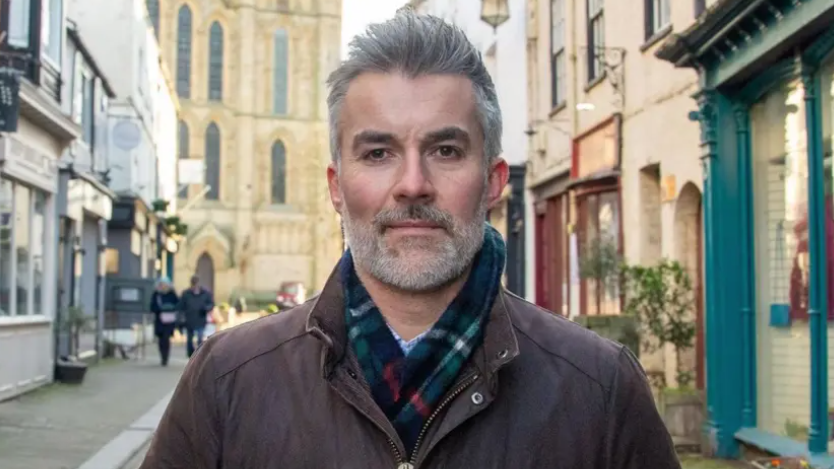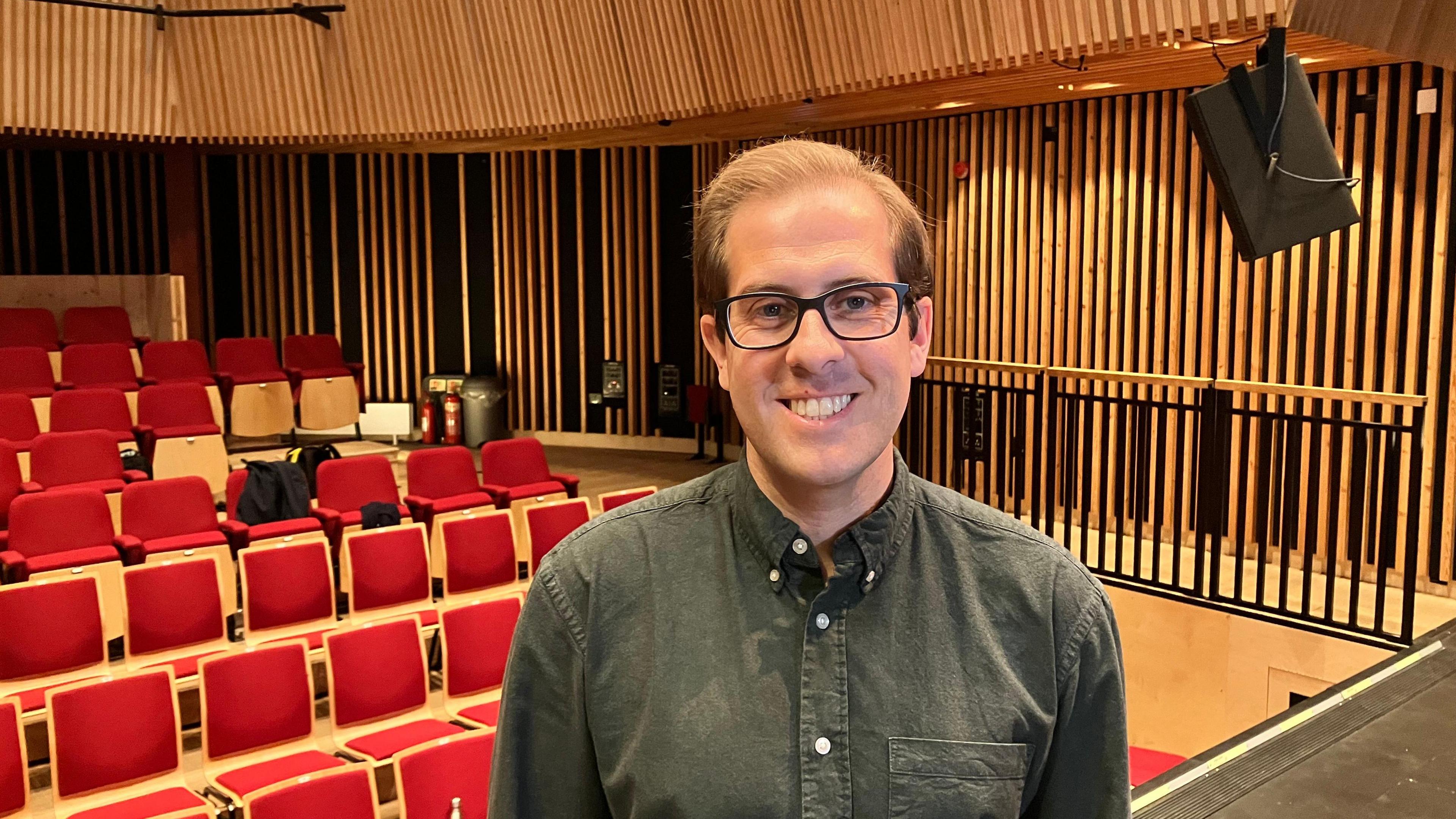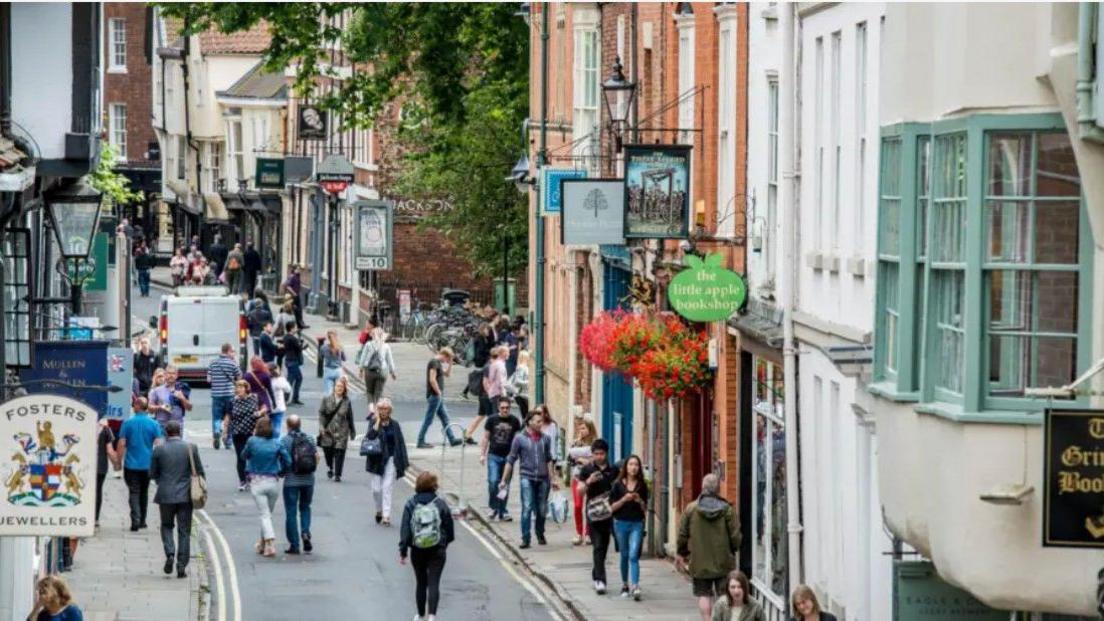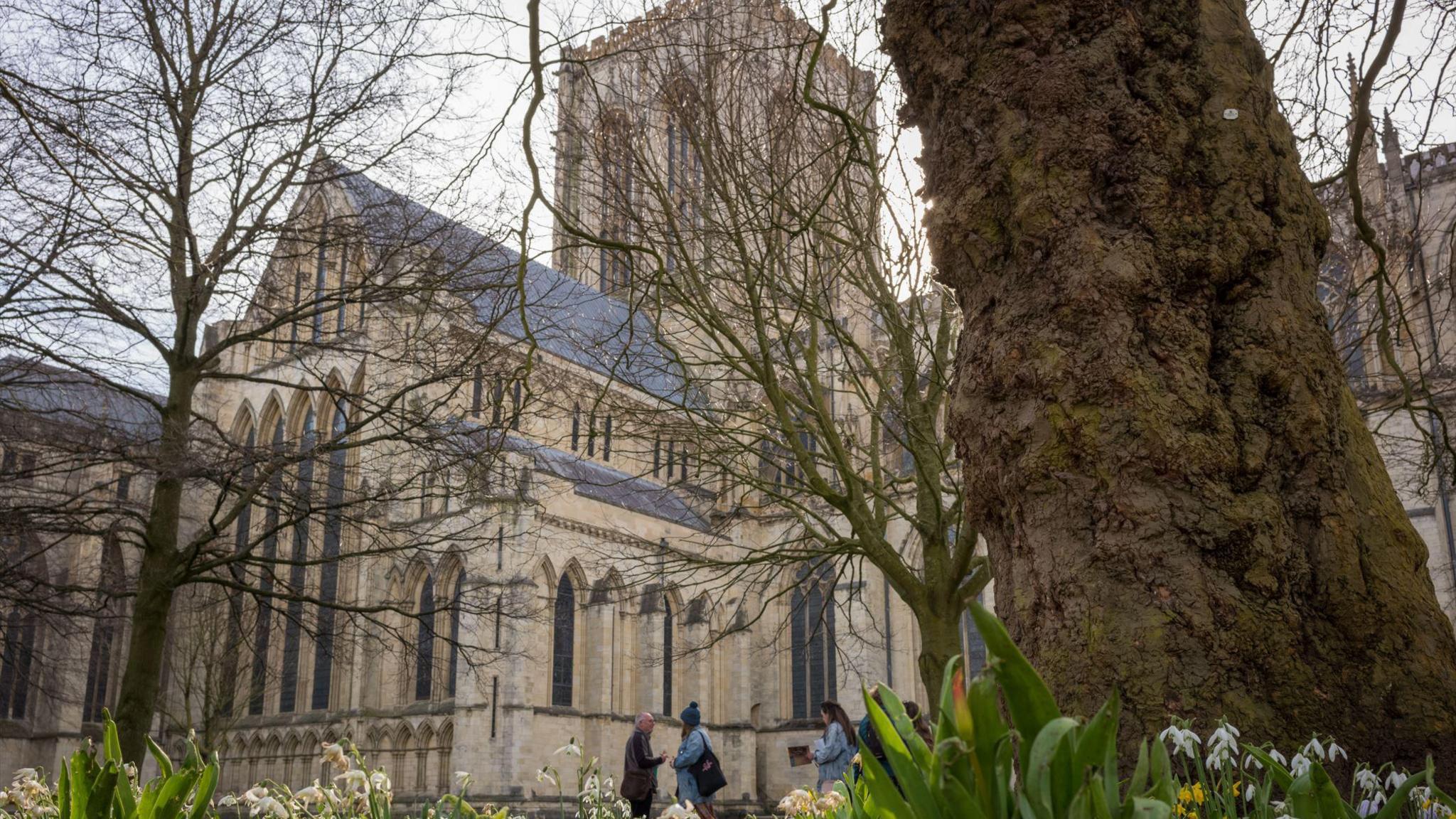Mayor's Budget hope for '£52m' tourism tax

York and North Yorkshire Mayor David Skaith said the region's case for a tourist tax was backed by in-depth research
- Published
York and North Yorkshire's elected mayor has said he is "hopeful" the upcoming Budget will bring news of a tourist tax - or visitor levy - that research suggests could bring £52m a year to the local economy.
David Skaith said mayors across the country had been "engaging for some time" with ministers about the tax, but that York and North Yorkshire's case was the only one backed by in-depth academic research into the benefits a levy could bring.
Skaith said: "This research helps us show how we would collect the money and what it would be used for. We're really hopeful. It would be transformative for our region."
A Treasury spokesperson said: "We do not comment on Budget speculation."
The research was carried out by a policy lab set up by York St John University and the mayoral combined authority to look at "key challenges" faced by the York and North Yorkshire region.
It states that a £1-a-night visitor levy could make more than £26m a year across York and North Yorkshire, rising to more than £52m if the charge was set at £2.
Skaith said the £52m was "about four times" the sum the combined authority currently received to invest in transport.
Some of the money would be spent on promoting the region to UK and overseas tourists, he said.
There would also be a push to promote York and North Yorkshire as a location for film and TV production companies and further investment in local high streets.
Labour mayor Skaith said: "The great thing about this levy is it won't cost local residents a penny.
"It's great we get so many people in our region and we want to attract more, but some locals do feel like they are pushed out.
"So the money from the levy would support local people - through improved transport - and we could also improve our tourism offer by getting people out into other areas, helping the whole region benefit and creating more jobs for local people."

Brendan Paddison, Dean of York St John University's business school
Brendan Paddison is Dean of York St John University's business school, the policy lab's academic lead and also chairs York Tourism Advisory Board.
Last summer, he was a leading voice at a university conference organised to debate how York's residents could benefit from a tourism trade that brings 9m visitors a year to the city.
Mr Paddison said: "Everyone would want a slice of the tourism levy pie.
"The industry should have a significant slice to support the work they're doing.
"But there needs to be investment in public realm and elected leaders are keen to invest in local transport infrastructure.
"Some could be invested in local community projects.
"That would help go some way for residents to see how tourism is benefiting everybody, and perhaps deal with concerns about over-tourism."
York-based sales and marketing business owner Keith Rozelle said he presented his own visitor levy research, which he worked on with University of York students earlier this year, to York Central Labour MP Rachael Maskell and City of York Council's deputy leader, Pete Kilbane.
That research - based on the city of York only - found a charge of £1 would raise £1.7m a year.
The recommendation, Mr Rozelle said, was an overnight levy of £3.50 to £4.50 per room per night, which would generate between £3m and £4m per year.
Mr Rozelle, who supports the idea of a levy, said: "A friend stayed in Manchester recently and paid a mandatory £1 per night, while Hawaii charges $50 dollars per room per night, so York is very much in the sensible middle ground."
While some cities, like Manchester and Edinburgh, have introduced "voluntary" tourist charging, the government would need to grant mayoral authorities the power to set up their own levy systems.
The Treasury spokesperson said: "The Budget later this month will build stronger foundations to secure Britain's future and focus on working people's priorities of cutting waiting lists, cutting the national debt and cutting the cost of living."
Get in touch
Tell us which stories we should cover in Yorkshire
Listen to highlights from North Yorkshire on BBC Sounds, catch up with the latest episode of Look North.
Related topics
- Published4 February

- Published30 March
